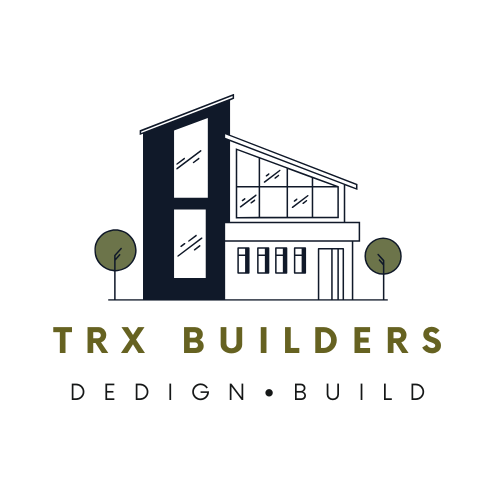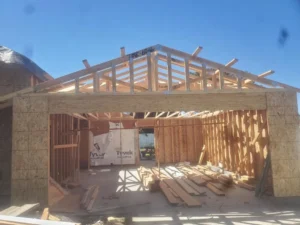How Much Does Garage Conversion Cost?
Garage conversions are a fantastic way to maximize the space in your home and increase its value. Whether you need an extra bedroom, a home office, a gym, or even a rental unit, converting your garage can give you the additional space you’ve been looking for without having to move. But, like any home improvement project, the cost of a garage conversion can vary significantly depending on several factors.
In this article, we’ll take a closer look at the costs involved in converting your garage, what factors affect the price, and how to budget for such a project. Whether you’re looking to convert a small one-car garage or a larger two-car garage, we’ll help you understand what to expect.
Why Consider a Garage Conversion?
Before diving into the costs, let’s quickly discuss why a garage conversion is a smart investment. Converting your garage can give you additional living space without the expense of building an entirely new addition to your home. In fact, garage conversions are one of the most cost-effective ways to increase your home’s usable square footage.
Here are a few common reasons homeowners choose to convert their garages:
- Extra Living Space: Whether you need a bedroom for a growing family or a quiet office away from the bustle of the main house, a garage conversion offers the perfect solution.
- Rental Income: Many homeowners convert their garages into rentable units to generate extra income. With a few modifications, a garage can become a private space for tenants, providing you with a passive income stream.
- Increased Home Value: A well-designed garage conversion can increase the value of your home, especially in areas where living space is at a premium. It makes your property more attractive to buyers and adds to its overall functionality.
What Affects the Cost of a Garage Conversion?
The cost of a garage conversion can vary widely depending on a number of factors. These include the size of the garage, the extent of the conversion, the materials used, and the location of your home. Let’s break down the most significant factors that will affect your garage conversion cost:
1. Size of the Garage
One of the most obvious factors influencing the cost is the size of your garage. A small one-car garage will be less expensive to convert than a large two- or three-car garage. Larger garages require more materials, more labor, and potentially more time to convert, all of which add to the total cost of the project.
2. Type of Conversion
The type of conversion you choose will also play a big role in how much you spend. There are several types of garage conversions, and each one has its own cost associated with it:
- Basic Conversion: This type of conversion typically includes adding drywall, flooring, and lighting to turn your garage into a basic living space. It may include a simple partition to separate the space from the rest of the home. This is usually the least expensive option.
- Full Conversion: A full conversion includes electrical work, plumbing, insulation, HVAC installation (if needed), and possibly windows and doors. It may also require changes to the structure of the garage. This type of conversion is more expensive but results in a more livable, fully-functional space.
- Luxury Conversion: For those looking for a high-end conversion, this might involve custom finishes, high-end flooring, specialized lighting, and built-in storage. Luxury conversions can cost significantly more, especially if you’re adding high-end features like custom cabinetry or smart home technology.
3. Electrical and Plumbing Work
If your conversion requires additional electrical or plumbing work (for example, adding a bathroom or kitchenette), this will increase the cost. Adding plumbing lines or electrical circuits requires a licensed professional and may involve additional permits, which can add to the overall cost.
4. Insulation and HVAC
To ensure your garage is a comfortable living space year-round, you’ll need to address insulation and heating/cooling needs. Since garages are often poorly insulated, adding proper insulation will be necessary, especially if you plan to use the space during the winter or summer months. Installing a new HVAC system or connecting the existing system to the garage will also increase the cost.
5. Permits and Zoning Regulations
In most areas, converting a garage into a living space will require permits and adherence to local zoning regulations. Some areas have strict rules about garage conversions, particularly when it comes to adding bathrooms, kitchens, or electrical systems. Getting the necessary permits and having inspections done will add to the cost of the project.
6. Labor Costs
Labor costs will vary depending on your location and the complexity of the project. If you’re working with a contractor, the price of labor will be a significant part of your total cost. Labor rates can vary widely based on where you live and the experience of the contractors you hire. Typically, contractors charge by the hour or by the square foot.
7. Finishing Touches and Materials
The materials and finishes you choose will have a big impact on the cost of your conversion. High-end flooring materials, custom cabinetry, or designer fixtures will all add to the overall cost. On the other hand, you can save money by opting for more affordable materials that still provide a great look, such as laminate flooring or prefabricated cabinets.
Average Garage Conversion Costs
Now that we’ve covered the key factors that affect the cost, let’s take a look at the average price range for a garage conversion. While costs can vary, here are some general guidelines:
- Basic Conversion: A basic garage conversion can cost anywhere from $5,000 to $15,000. This usually involves simple upgrades like drywall installation, basic flooring, and electrical work.
- Full Conversion: A more extensive conversion that includes plumbing, insulation, and a new HVAC system typically costs between $15,000 and $40,000. This may also include additional rooms, like a small bathroom or kitchenette.
- Luxury Conversion: High-end conversions, which may involve custom design elements, luxury finishes, and extensive structural work, can range from $40,000 to $70,000 or more.
It’s important to note that these are general estimates. The final cost will depend on the factors mentioned earlier and your specific needs.
Is a Garage Conversion Worth the Cost?
A garage conversion can offer great value in terms of additional living space and potential rental income. The return on investment (ROI) for a garage conversion depends on several factors, including the location of your home, the type of conversion, and the demand for additional living space in your area.
In general, garage conversions tend to offer a solid ROI, especially if they provide a functional living space that adds value to your property. If you’re planning to rent the space, the potential rental income can offset the cost of the conversion and continue to provide value long after the project is completed.
Transform Your Garage into a Valuable Living Space
Converting your garage into a livable space can significantly increase your home’s value and functionality. Whether you’re looking to add a guest suite, a home office, or a rental unit, a garage conversion is a cost-effective way to maximize your home’s potential. The cost of a garage conversion depends on a variety of factors, including the size of the garage, the scope of the remodel, and the materials you choose. However, with proper planning and budgeting, it can be a worthwhile investment that adds both value and comfort to your home.
If you’re ready to start your garage conversion, TRX Builders is here to help. Contact us today for a consultation, and let’s work together to turn your garage into a beautiful, functional living space!

